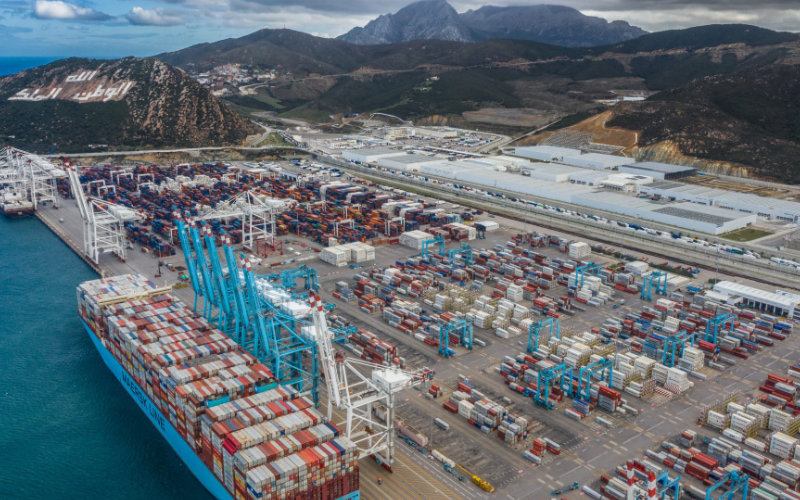Malta Fears Shipping Exodus as EU Environmental Tax Looms, Tanger Med Port Gains Appeal

Malta fears the tax advantage of the Tanger Med port due to the introduction of an environmental tax in European Union (EU) countries starting in 2024. Major shipping companies may turn to the Moroccan port.
The Malta Maritime Forum says it is concerned about the "imminent risk" that major shipping companies will withdraw from Malta due to an environmental tax that will be introduced in European Union countries next year. In an interview with The Malta Independent, Kevin J. Borg, CEO of MMF, said there is a "likely scenario" in which Malta would lose its role as a transshipment hub, with shipping companies choosing port calls outside the EU where no such tax is paid. While he says he recognizes the laudable climate and environmental objectives underlying the EU’s Emissions Trading System (ETS), he points out that the current flaws in the implementation mechanism could inadvertently make it incompatible with Europe’s fundamental principles and objectives for carbon neutrality.
The EU ETS, as a major carbon market, is a key element of the EU’s strategy to combat climate change, serving as an essential instrument for effectively reducing greenhouse gas emissions. The EU ETS Directive on maritime transport implies that ships must surrender EUAs (Emission Unit Allowances) to offset the carbon they generate when sailing. "But in the absence of a globally applicable measure, ships sailing to EU ports will pay higher EUA costs, and those able to avoid EU ports could avoid the provisions (and costs) of the directive," said the MMF CEO, explaining that the cost differential between EU ports and third-country ports could amount to 34 million euros per year for each route served.
"This has been confirmed by major carriers, while reaffirming that the competitive scenario is such that the decision of a single carrier to bear the additional EUA cost could have existential consequences on the business compared to others who decide to circumvent the directive. Clearly, this gap is prohibitive enough to force major shipping companies to seek alternative solutions," said Kevin J. Borg, explaining that the increase in investments by major shipping companies in container terminals to create TEU capacity in Mediterranean ports in non-EU countries such as Egypt and Morocco leaves no doubt that shipping companies are preparing alternative solutions to circumvent the EU ETS regime.
According to him, such investments are unequivocal signals that major carriers are being led to make irreversible decisions to omit EU-based Mediterranean transshipment hubs and turn to non-European ports such as East Port Said and Tanger Med, in order to avoid the prohibitive costs imposed by this directive and instead use feeder ships to ship goods to the EU.
Related Articles
-

Avocado Crisis Sparks Major Agricultural Investment in Morocco
28 September 2025
-

Morocco’s Billion-Dollar Opportunity: The Untapped Aircraft Graveyard Industry
27 September 2025
-

Stellantis Taps Moroccan Workforce to Boost Grande Panda Production
27 September 2025
-

Morocco: Argan tree climbing goats exploited for tourism
25 September 2025
-

Morocco’s Tanger Med Outshines Asian Giants in Global Port Efficiency
25 September 2025